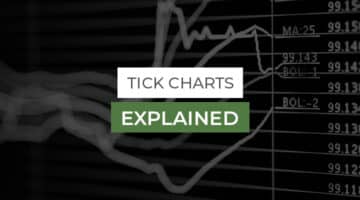What is Spread in Forex?

In this article
One of the most fundamental topics is knowing what is the Spread in Forex?
The spread in Forex is the difference between the Bid and Ask price of a given currency pair. The definition just given for Spread is short and to the point, but probably raises more questions than it answers. Let’s dive deep into the topic of Forex trading spreads to understand why everyone is talking about them and how they play such an influential role in FX trading.
A Closer Look at Spread in Forex
If you’ve been interested in trading Forex for longer than five minutes, you have probably seen the phrase tight spreads mentioned somewhere. For many traders, Forex Spreads are considered a cost, which they would ideally like to eliminate or reduce as much as possible.
The global banks which lead the way in quoting foreign exchange rates, do so with an aim to make money. The trading desks operated by banks are considered Market Makers. These payers are unquestionably at the top of the food chain.
The name Market Maker comes from the notion that these institutions make the market. Foreign exchange desks are continually buying, selling and quoting for different currencies on a colossal scale. To make money, they sell for a higher price than what they buy at.
When you look at the quotes in your trading platform, you will notice two prices; a Bid (buy) price and an Ask (sell) price. The Bid is always equal to or greater than the Ask. Make sure you understand what is Forex trading!
New Forex traders often assume that that Bid price is what they will buy at. It’s, in fact, the opposite way around. The Bid price is what your broker is willing to buy from you at. This means when you place a buy order, it will be filled at the Ask price. When it comes time to close the position, and your broker buys back the asset, it will be closed at the Bid price.
The Spread is the difference between the Bid and Ask prices. Also known as the Bid-Ask Spread. For example; if the price of EUR/GBP is 0.903335 (BID) and 0.90330 (ASK) by subtracting one from the other, you will be left with the spread, which in this case will be 0.5 Pips or 5 Points.
Calculation: 0.90335 – 0.90330 = 0.00005
When you are describing what is the Spread in Forex, most traders will express values in Pips. However, some traders prefer to say Points as it’s easier to explain verbally by using whole numbers.
Why Forex Spreads are Important
A lot of emphasis gets put on Forex trading Spreads because they are considered as a barrier to profitability. When you enter a trade, you may notice that immediately the PnL of your position is negative; that’s because of the Spread.
If the Spread is 0.5 Pips, that means when you open a position, it will be negative 0.5 Pips. As the ultimate goal of trading Forex is to close your positions at a profit, the lower the spread, the easier it is to do that. Whereas the wider the gap, the more the market needs to move in your favour for you to be able to reach a profitable point.
The lower the spreads, the better it is for the trader. See how leverage can impact your trading.
Zero Commissions vs Tight Spreads vs Fixed Spreads
Spreads influence the trading accounts that Forex brokers offer. At most brokers, there are a variety of account types for you to choose from. The traditional ones advertised by brokers are what’s known as an ECN Account and a Standard Account. Less common is a Fixed Spread Account.
ECN Accounts are offered with very tight spreads. Brokers do everything within their power to give the trader the lowest possible spreads. The broker will charge a commission on every transaction you make. Commissions are the broker’s compensation for providing the service to you. This account type is sometimes known as Pro Accounts or another related name.
Standard Accounts are offered without a commission. The way brokers make money is by increasing the spread. If you compare the account types of brokers, you will probably notice that the fees typically work out the same, it’s only the way the fees are charged is different.
Some brokers offer Fixed Spread accounts. As the name suggests, these accounts have a constant spread that is fixed and remains the same as prices move up and down. Spreads in Forex continuously change throughout the day and at certain times can become extremely wide. Traders like to protect themselves from these anomalies by trading on a Fixed Spread account.
How to Calculate Forex Spread Costs
It’s easy to understand how commissions are charged on your trades. Figuring out how Spreads in Forex are charged is more challenging. Let’s continue with the example we used earlier.
The price of EUR/GBP is 0.903335 (BID) and 0.90330 (ASK), and therefore, the Spread is 0.5 Pips. If you trade 1 Lot (100,000) of EUR/GBP the value of each Pip is £10. This means the cost of the spread on this trade would be £5.
How Spread is Different for Various Currency Pairs
The Spread in Forex is not the same for every currency pair. The major currency pairs such as EUR/USD, USD/JPY and EUR/GBP have the lowest spreads of all. These crosses are among the most commonly traded currencies due to the greater interest and demand. As more participants are trading those pairs, the spreads naturally fall due to competition.
Less commonly traded pairs like the South African Rand or Czech Koruna typically have much wider spreads. The reason for wider spreads is because the demand for the currencies is much lower. Market Makers take a more substantial risk dealing in these currencies due to the uncertainty of whether they will sell them or not. The risk is offset by increasing spreads.
Jason Morgan is an experienced forex analyst and writer with a deep understanding of the financial markets. With over 13+ years of industry experience, he has honed his skills in analyzing and forecasting currency movements, providing valuable insights to traders and investors.
Forex Content Writer | Market Analyst
Relevant Posts

What are Index Points?
[top_three_brokers] Do you know what the index point is? A market index point is a…
Read more

Trading the Currency Market – Best Practices
[top_three_brokers] Trading the currency market can seem like a daunting task if you don't know…
Read more

Major Currency Pairs Traded in South Africa
[top_three_brokers] When selecting the best major currency pairs traded in South Africa for beginners, you…
Read more

Market Fundamental Analysis
[top_three_brokers] Fundamental analysis may seem like a thing that your economy teacher yelled at you…
Read more

Tick Chart Explained
[top_three_brokers] As a trader, you use a wide variety of charts to analyse markets. If…
Read more

What is a lot in Forex – Lots sizes Explained
[top_three_brokers] One of the basic terms that you are sure to come across time and…
Read more

Forex Trading in Swaziland
[top_three_brokers] Did you know over $5 trillion worth of transactions happen in the forex market…
Read more

Price Action Trading Explained
[top_three_brokers] In the fast-paced world of forex, price action is the foundation stone for technical analysis. Many…
Read more

Forex Signals – Does it Improve Your Trading?
[top_three_brokers] If you are new to forex trading, you might have heard of forex trading…
Read more

What is a Margin Call?
[top_three_brokers] The traders need to know about margin calls, how they arrive, and avoid them…
Read more

What are Index Points?
[top_three_brokers] Do you know what the index point is? A market index point is a…

Trading the Currency Market – Best Practices
[top_three_brokers] Trading the currency market can seem like a daunting task if you don't know…

Major Currency Pairs Traded in South Africa
[top_three_brokers] When selecting the best major currency pairs traded in South Africa for beginners, you…

Market Fundamental Analysis
[top_three_brokers] Fundamental analysis may seem like a thing that your economy teacher yelled at you…

Tick Chart Explained
[top_three_brokers] As a trader, you use a wide variety of charts to analyse markets. If…

What is a lot in Forex – Lots sizes Explained
[top_three_brokers] One of the basic terms that you are sure to come across time and…

Forex Trading in Swaziland
[top_three_brokers] Did you know over $5 trillion worth of transactions happen in the forex market…

Price Action Trading Explained
[top_three_brokers] In the fast-paced world of forex, price action is the foundation stone for technical analysis. Many…

Forex Signals – Does it Improve Your Trading?
[top_three_brokers] If you are new to forex trading, you might have heard of forex trading…

What is a Margin Call?
[top_three_brokers] The traders need to know about margin calls, how they arrive, and avoid them…


